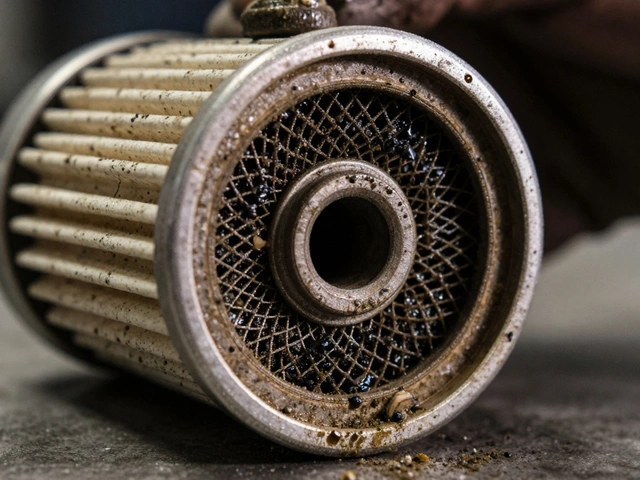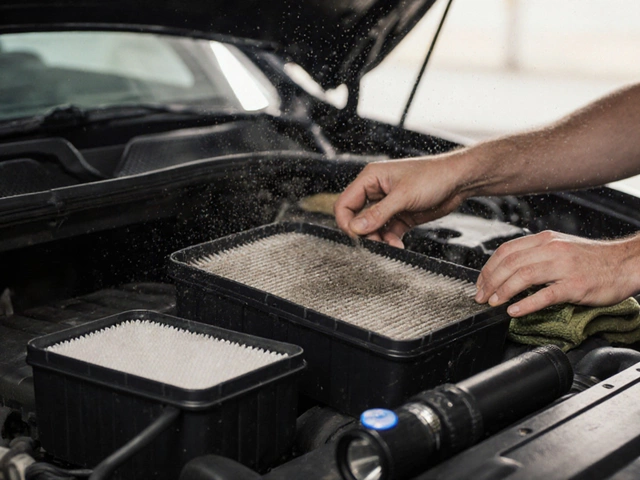Airflow Essentials: Boost Your Car’s Performance and Longevity
Ever wonder why a clean air path makes your car feel smoother? Good airflow means the engine gets the right amount of fresh air, which helps it burn fuel efficiently. When air can flow freely, you notice better acceleration, lower fuel use, and less strain on other parts like the clutch and tyres. Let’s break down what you need to know to keep that airflow in top shape.
Why Airflow Matters
Air moves through the filter, into the intake, and finally into the combustion chambers. If the filter is clogged, the engine works harder to pull air in, which can raise temperature and waste fuel. Over time, a restricted flow can lead to deposits on the spark plugs and wear on the clutch, making your car feel sluggish. Even a modest improvement in airflow can shave a few percent off your fuel bill – a win for your wallet and the environment.
Keeping Your Airflow Optimal
Start with the right filter. Premium filters often use multi‑layer cotton or synthetic media that traps more dirt while letting air pass. They’re pricier, but the longer service life and better flow usually pay off. If you’re on a tighter budget, a basic paper filter works fine – just replace it more often.
Check the filter at every oil change or at least every 12,000 miles. A quick visual check will show if it’s dark or torn. When you see heavy dust build‑up, pop it out and give it a gentle tap. If it’s still dirty, replace it. Swapping a filter takes under five minutes and saves you from costly engine wear later.
Don’t forget the intake hose and throttle body. Over time, oil mist and grime can coat these parts, choking the airflow. A light spray of carburetor cleaner and a soft brush can clear the residue. Do this during a routine tyre rotation or brake check – it’s an easy habit that keeps the whole system clean.
Many drivers think “bigger” means “better” when it comes to filters. Bigger surface area can improve flow, but only if the media is designed for it. Installing an oversized filter without proper sealing can create air leaks, causing the engine to run lean and potentially damage the clutch or spark plugs. Stick to the size recommended by the manufacturer unless you’re working with a full‑on performance kit.
When you hear a rattling sound from the intake, it could be a loose filter housing. Tighten the clamps and make sure the gasket is seated correctly. A loose filter not only reduces airflow but also lets debris into the engine, which can cause expensive damage.
Quick airflow checklist:
- Inspect filter condition every 12,000 miles.
- Replace or clean as needed – premium filters last longer.
- Clean intake hose and throttle body annually.
- Check for loose housings or damaged gaskets.
- Stay with manufacturer‑approved filter sizes.
 22 May 2025
22 May 2025
MERV 11 Filters: Are They Too Restrictive for Your HVAC?
Worried that a MERV 11 filter could restrict your HVAC airflow or bump up your energy bills? This article digs into what makes MERV 11 filters different, explains how they work with typical home systems, and shares facts that could save you money and hassle. You'll find out if these filters are really too much, or if they're just right for better air quality. We'll go over real-life tips and help you decide if you actually need this level of filtration. Stop guessing—get the answers you need to keep your air clean without wrecking your system.
Tags
- car maintenance
- engine oil
- spark plugs
- brake pads
- engine performance
- vehicle maintenance
- spark plug replacement
- windshield wipers
- fuel pump
- suspension parts
- clutch replacement
- oil change
- clutch kit
- car suspension
- car performance
- air filters
- car radiator
- exhaust systems
- fuel pump replacement
- engine misfire






0